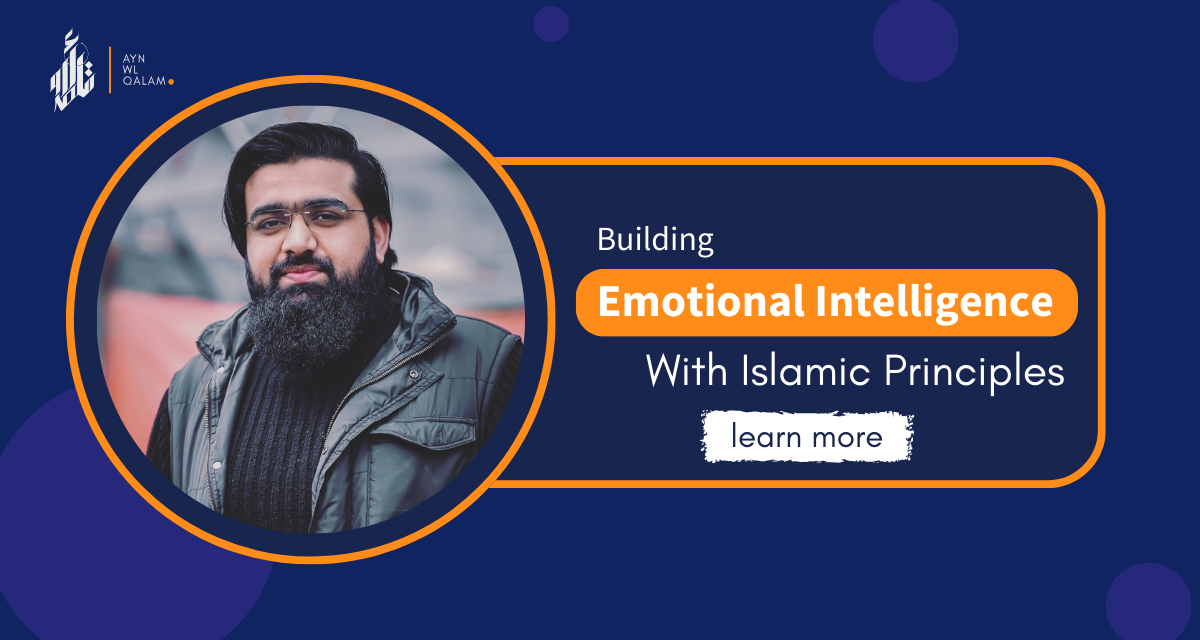Emotional Intelligence (EI) is crucial for personal development and successful relationships. It involves understanding and managing your own emotions while empathizing with others. Integrating Islamic principles into the development of emotional intelligence can provide a unique and profound approach to enhancing EI. This article explores how Islamic teachings can help build and refine emotional intelligence.
Understanding Emotional Intelligence in Islam
Emotional Intelligence in Islam is deeply rooted in the teachings of the Quran and Hadith. Islam encourages believers to cultivate traits such as patience, empathy, and self-control, essential components of EI.
Islamic Perspective on Emotions
The Quran and Hadith guide managing emotions in a way that aligns with Islamic values. For example, the Prophet Muhammad (peace be upon him) emphasized the importance of patience (sabr) and forgiveness, which are key elements of emotional intelligence.
1. Practice Self-Awareness
Self-awareness is the foundation of emotional intelligence. It involves recognizing and understanding your own emotions and their impact on your behavior.
Islamic Practices for Self-Awareness
- Regular Self-Reflection: Engage in self-reflection through daily supplications (du’a) and personal evaluation.
- Journaling: Keep a journal to record your emotions, thoughts, and reactions. Reflect on how your behavior aligns with Islamic teachings.
- Tazkiyah (Purification of the Soul): Focus on self-improvement and spiritual growth to better understand and manage your emotions.
2. Develop Self-Regulation
Self-regulation involves constructively managing your emotions. Islam emphasizes controlling negative emotions and responding to challenges with patience and resilience.
Islamic Techniques for Self-Regulation
- Dhikr (Remembrance of Allah): Use dhikr to calm your mind and heart during stressful situations.
- Patience (Sabr): Practice patience in the face of adversity, as taught by the Prophet Muhammad (peace be upon him).
- Forgiveness: Learn to forgive others and yourself, following the example of the Prophet Muhammad (peace be upon him).
3. Enhance Empathy
Empathy is the ability to understand and share the feelings of others. Islam places a strong emphasis on compassion and understanding towards others.
Islamic Approaches to Empathy
- Empathy in the Hadith: Follow the teachings of the Prophet Muhammad (peace be upon him) about treating others with kindness and understanding.
- Volunteering and Charity: Engage in acts of charity and service to develop a deeper understanding of the struggles faced by others.
- Listening Actively: Practice active listening and genuine interest in others’ experiences and emotions.
4. Improve Social Skills
Effective communication and interpersonal skills are essential aspects of emotional intelligence. Islam offers valuable guidelines for improving social interactions.
Islamic Guidelines for Social Skills
- Respect and Manners: Follow the Sunnah of the Prophet Muhammad (peace be upon him) in treating others with respect and good manners.
- Conflict Resolution: Use Islamic principles to address conflicts peacefully and constructively.
- Gratitude: Express gratitude (shukr) to others, as it fosters positive relationships and emotional well-being.
5. Cultivate Emotional Resilience
Emotional resilience involves bouncing back from setbacks and maintaining a positive outlook. Islam provides teachings that help build emotional strength and resilience.
Islamic Methods for Building Resilience
- Trust in Allah (Tawakkul): Develop a strong trust in Allah’s plan and wisdom, which can help you navigate through difficulties with a positive attitude.
- Seeking Support: Turn to prayer and community support during challenging times.
- Gratitude and Reflection: Focus on the blessings and lessons learned from difficult experiences.
6. Practice Emotional Balance
Emotional balance is about managing emotions in a way that maintains overall well-being. Islam promotes a balanced approach to life, emphasizing moderation in all aspects.
Islamic Practices for Emotional Balance
- Moderation (Wasatiyyah): Follow the principle of moderation in your emotions and actions, avoiding extremes.
- Regular Worship: Maintain regular worship and spiritual practices to keep your emotions aligned with Islamic values.
- Healthy Lifestyle: Engage in physical activities and maintain a healthy lifestyle to support emotional well-being.
Conclusion
Building emotional intelligence through Islamic principles involves integrating self-awareness, self-regulation, empathy, social skills, resilience, and emotional balance into your daily life. By following the teachings of the Quran and Hadith, you can develop a deeper understanding of your emotions and enhance your interactions with others. This holistic approach to emotional intelligence not only improves personal and professional relationships but also strengthens your spiritual connection with Allah.

